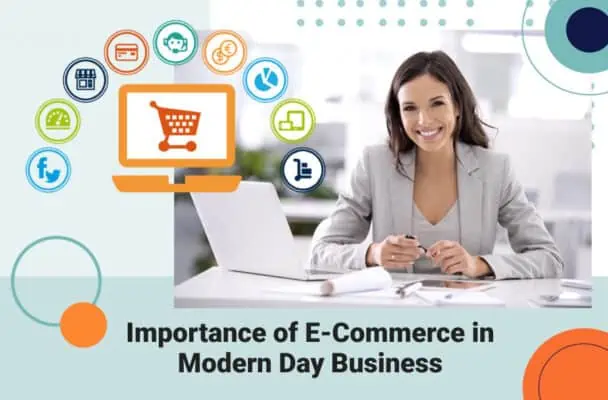The Importance of E-Commerce in Modern Business
In today’s fast-paced owners environment, e-commerce store has a significant role to play. It has transformed the way organizations conduct, making it more efficient and cost-effective. The rise of online store has allowed to expand their reach beyond their geographical boundaries, enabling them to connect with customers worldwide. Customers today seek convenience, and allows them to shop from the comfort of their homes or on-the-go, using their mobile devices. From online marketplaces to social media platforms, companies can now explore various channels to reach their target audience. In addition, e-commerce provides with valuable data on customer behavior, which can be used to improve marketing strategies and product offerings. To stay competitive, owners need to embrace as an integral part of their strategy. It is not just a trend; it’s a necessity.
The world of ecommerce website has undergone a dramatic transformation with the advent of the internet and technological advancements. One of the most significant changes is the rise, which has revolutionized the way companies operate and interact with customers. In this article, we will explore buy products online or service, its evolution, benefits, challenges, brand and future trends.

1. Introduce about Electronic Commerce Business Modern
In today’s digital age, it has become an indispensable part of the landscape. It refers to the buying and selling of goods and services over the internet, utilizing electronic means of transaction. The convenience, accessibility, and global reach have made it a vital tool for selling products of all sizes.
2. Definition and Importance of E-Commerce
Ecommerce encompasses various forms, including (B2C), business to business B2B, consumer-to-consumer (C2C), and even mobile. B2C involves transactions between businesses and individual consumers, while B2B focuses on transactions. C2C enables individuals to trade goods or services directly with one another, facilitated by online platforms. E-commerce refers to conducted through mobile devices, such as smartphones and tablets.
3. Evolution of Ecommerce
The origins of e-commerce site can be traced back to the 1960s when electronic data interchange (EDI) was introduced to facilitate and benefit of e-commerce transactions. However, it wasn’t until the 1990s that ecommerce gained significant momentum with the rise of the internet. Companies started establishing online stores, allowing customers to purchase products and services from the comfort of their homes.
Since then, ecommerce has continued to evolve, transforming the way operate. The widespread adoption of secure online payment systems, improved logistics and supply chain management, and advancements in digital marketing techniques have fueled the growth of ecommerce.
4. Benefits and Advantages of E-Commerce Modern Business
- Increased Reach and Global Presence
One of the primary advantages of ecommerce is its ability to break down geographical barriers. Unlike traditional brick-and-mortar stores, online ecommerce are not limited to a specific location. With a well-designed e-commerce website, ecommerce can reach customers worldwide, tapping into new markets and expanding their customer base. This increased reach opens up immense growth opportunities and revenue potential.
- Cost-Effectiveness and Efficiency
Ecommerce offers significant cost-saving benefits compared to traditional retail. Setting up an online store requires less investment in physical infrastructure and staffing, making it an attractive option for startups and small. Moreover, ecommerce allows for streamlined operations, automating various tasks such as inventory management, order processing, and customer support. This increased efficiency translates to cost savings and improved profitability.
- Enhanced Customer Experience
In the digital era, customers expect convenience and personalized experiences. This platforms provide a seamless shopping experience, user-friendly allowing customers to browse products, compare prices, read reviews, and make purchases with just a few clicks. With advanced analytics and customer profiling, ecommerce can tailor recommendations and offers based on individual preferences, enhancing customer satisfaction and loyalty.
5. Type of Ecommerce Platforms and Technologies
To establish a successful store presence, rely on various platforms and technologies that enable smooth operations and customer interactions.
- Mobile Commerce
The rise of smartphones has paved the way for this small online. With the increasing number of people using their mobile devices to browse and shop online, it must optimize their websites and develop mobile apps to cater to this growing segment of consumers, can selling goods and services on this app. It offers the convenience of on-the-go shopping, enabling customers to make purchases anytime, anywhere.
- Social Commerce
Social media platforms have become powerful channels for e-commerce. Businesses leverage social by integrating online stores with social media platforms, allowing customers to discover products, read reviews, and make purchases without leaving their favorite social networks. Social combines the influence of social connections and the convenience of e-commerce, creating a unique shopping experience.
- Artificial Intelligence (AI) and Personalization
AI technologies play a crucial role in e-commerce, enabling to provide personalized recommendations, chatbot assistance, and predictive analytics. AI algorithms analyze customer data to understand preferences and behavior, offering tailored product suggestions and personalized marketing campaigns. This level of personalization enhances the customer experience and increases the likelihood of conversion.
6. Types of E-Commerce Challenges and Solutions
While e-commerce offers numerous benefits, it also presents challenges that must overcome to succeed in the digital marketplace.
- Security and Privacy Concerns
With the increasing prevalence of online transactions, security and privacy are major concerns for ecommerce and customers alike. Data breaches, identity theft, and fraudulent activities can erode customer trust. Implementing robust security measures, using secure payment gateways, and regularly updating software, internet marketing are essential to safeguard customer information and protect the integrity of this platforms.
- Logistics and Supply Chain Management
Efficient logistics and supply this form are critical for e-commerce success. Timely delivery, and order fulfillment are complex tasks that require careful planning and execution. Businesses must invest in robust logistics infrastructure, establish partnerships with reliable shipping carriers, and leverage advanced inventory management systems to ensure smooth operations.
- Competing with Established Retailers
The e-commerce landscape is highly competitive, with established retail giants dominating the market. For smaller businesses and startups, competing with these retail giants can be daunting. However, by focusing on niche markets, offering unique products or experiences, and leveraging digital marketing strategies, businesses can carve out their own space and attract loyal customers.
7. Future of E-Commerce Business
As technology continues to evolve, the future of e-commerce holds immense potential for further growth and innovation.
- Omni-Channel Retailing
The integration of online and offline channels, known as omni-channel retailing, is gaining prominence. Customers now expect a seamless experience across multiple touchpoints, whether they shop online, buying and selling of products visit a physical store, or use mobile apps. E-commerce businesses need to embrace this omni-channel approach, ensuring consistency and continuity in customer interactions.
- Voice Commerce and Internet of Things (IoT)
Voice assistants and IoT devices are transforming the way people interact with technology. Voice enables users to make purchases using voice commands, while IoT devices, such as smart home devices and wearable technology, create new opportunities for personalized about products store. Online businesses anywhere in the world must adapt to these emerging technologies to stay ahead of the competition.
- Augmented Reality (AR) and Virtual Reality (VR)
AR and VR technologies have the potential to revolutionize the e-commerce experience. By enabling virtual try-ons and immersive product experiences, AR and VR bridge the gap between online shopping and the in-store experience. E-commerce businesses can leverage these technologies to boost engagement, increase conversions, and provide unique.
8. Conclusion about importance of ecommerce on the world
In conclusion, e-commerce has become an indispensable component of modern business. Its ability to increase reach, lower costs, enhance customer experience, and leverage advanced technologies makes it a powerful tool for businesses of all sizes. However, e-commerce also presents challenges that require careful attention and strategic solutions. By embracing emerging trends and continuously innovating, businesses can harness the full potential of e-commerce and thrive in the dynamic digital landscape.
9. FAQs for Benefits of Ecommerce Business and Online Store
1. Is e-commerce only suitable for large businesses?
Not at all. E-commerce offers opportunities for businesses of all sizes. In fact, small and medium-sized businesses can leverage e-commerce to compete on a global scale and reach a wider audience without the need for substantial physical infrastructure.
2. What measures can businesses take to ensure the security of e-commerce transactions?
To ensure the security of e-commerce transactions, businesses should implement SSL certificates to encrypt data, use secure payment gateways, regularly update and patch software, educate employees about security best practices, and conduct periodic security audits.
3. How can businesses provide a personalized experience for customers in e-commerce?
By leveraging AI technologies and customer data, businesses can offer personalized product recommendations, tailored marketing campaigns, and customized. Collecting and analyzing customer data allows businesses to understand individual preferences and deliver relevant content and offers.
4. Are there any limitations to mobile commerce (m-commerce)?
While m-commerce offers convenience and accessibility, it may have limitations in terms of screen size and user experience compared to desktop or laptop devices. However, businesses can overcome these limitations by optimizing their websites and applications for mobile devices and offering a mobile-friendly interface.
5. What emerging trends should businesses watch out for in the future of e-commerce?
Businesses should keep an eye on trends such as omni-channel retailing, voice commerce, Internet of Things (IoT), augmented reality (AR), and virtual reality (VR). These technologies have the potential to reshape the e-commerce landscape and provide exciting opportunities for customer engagement and enhanced services to customers.

Pingback: Amazon Business reaches out to small business owners – Sourcing Agent Dropshipping News
Pingback: Ecommerce Email Marketing Strategy Creating a Winning E-commerce Plan – Sourcing Agent Dropshipping News